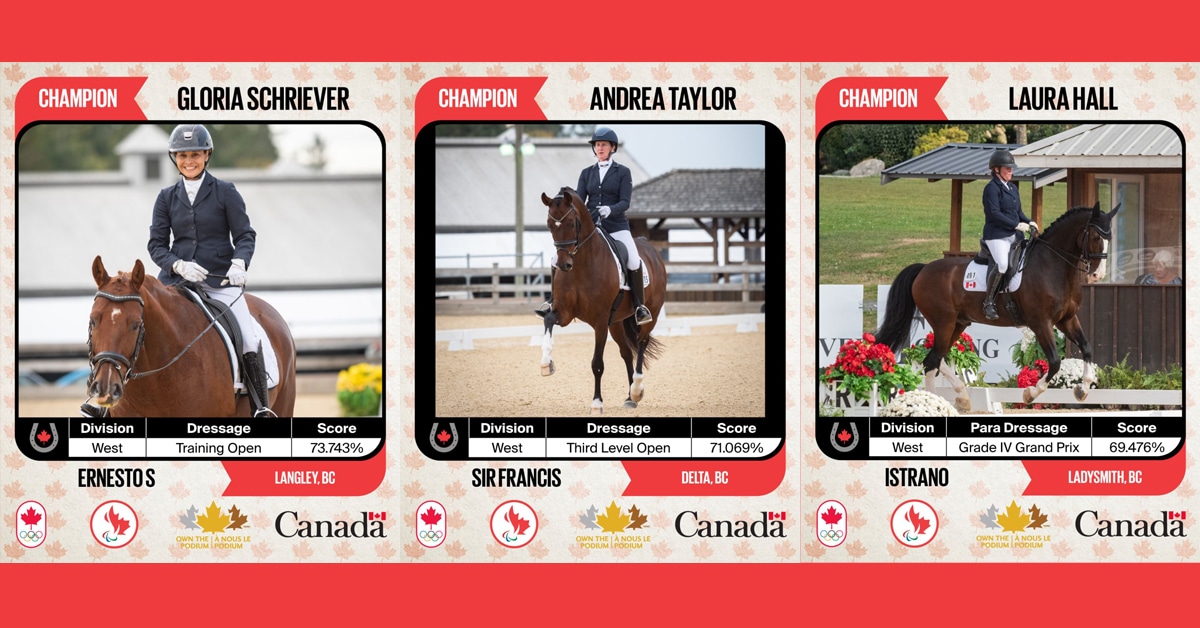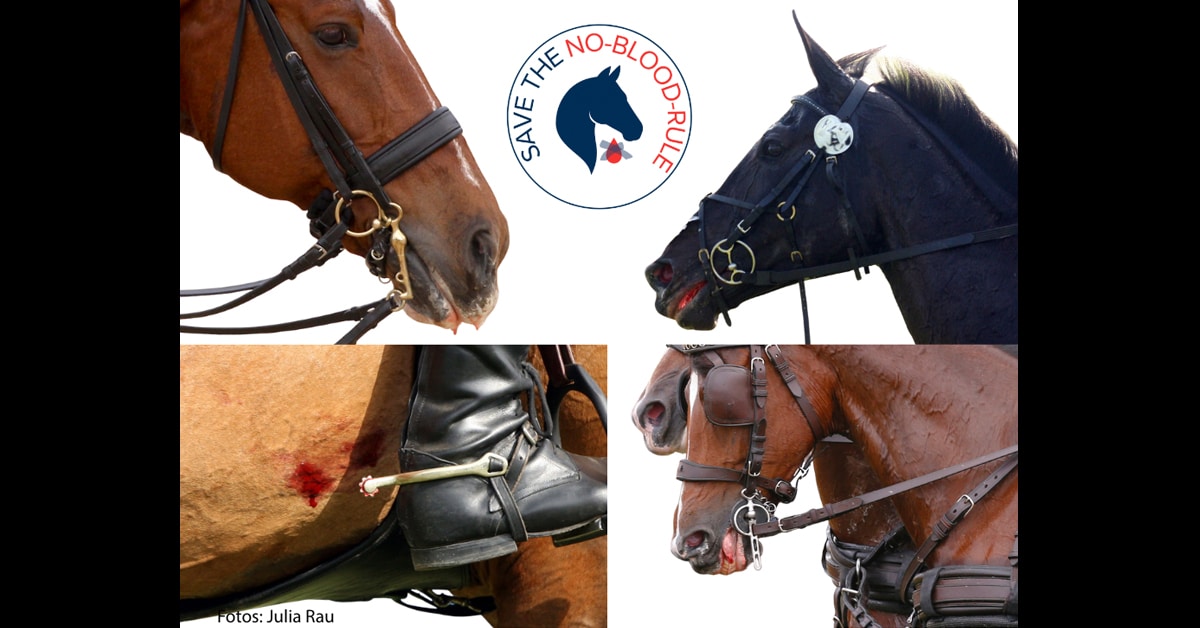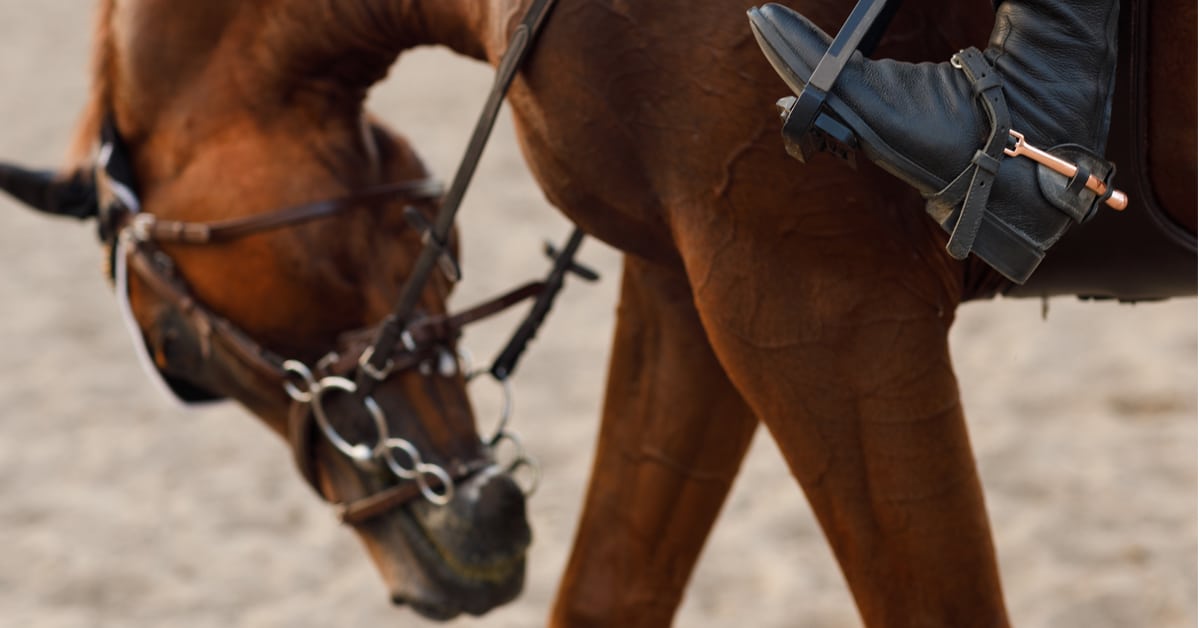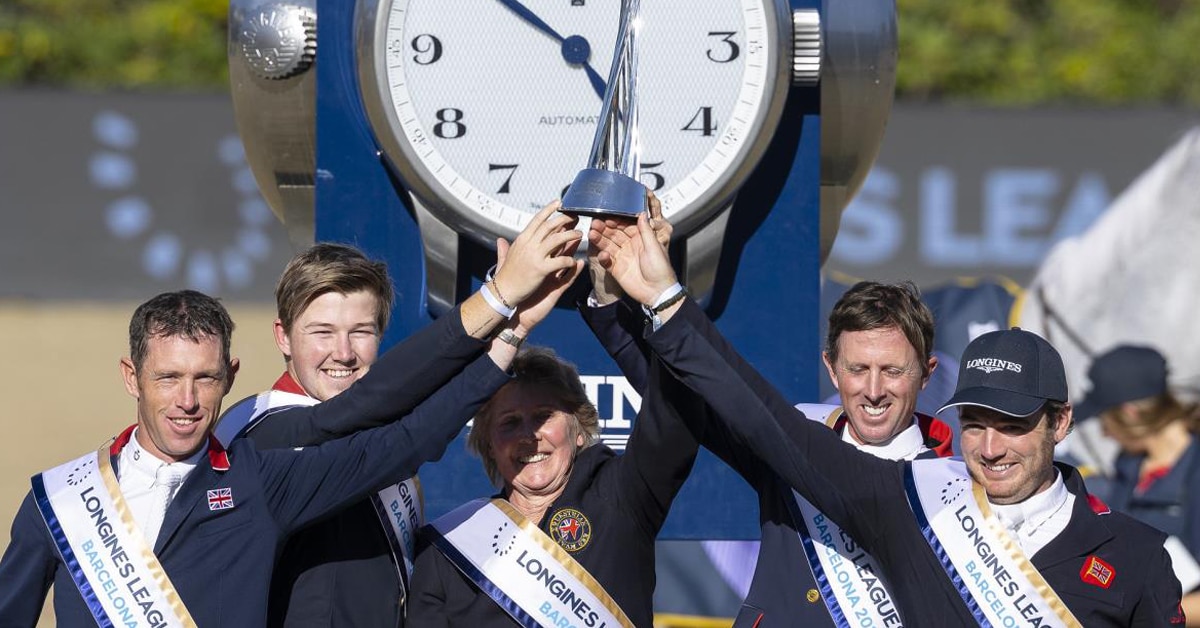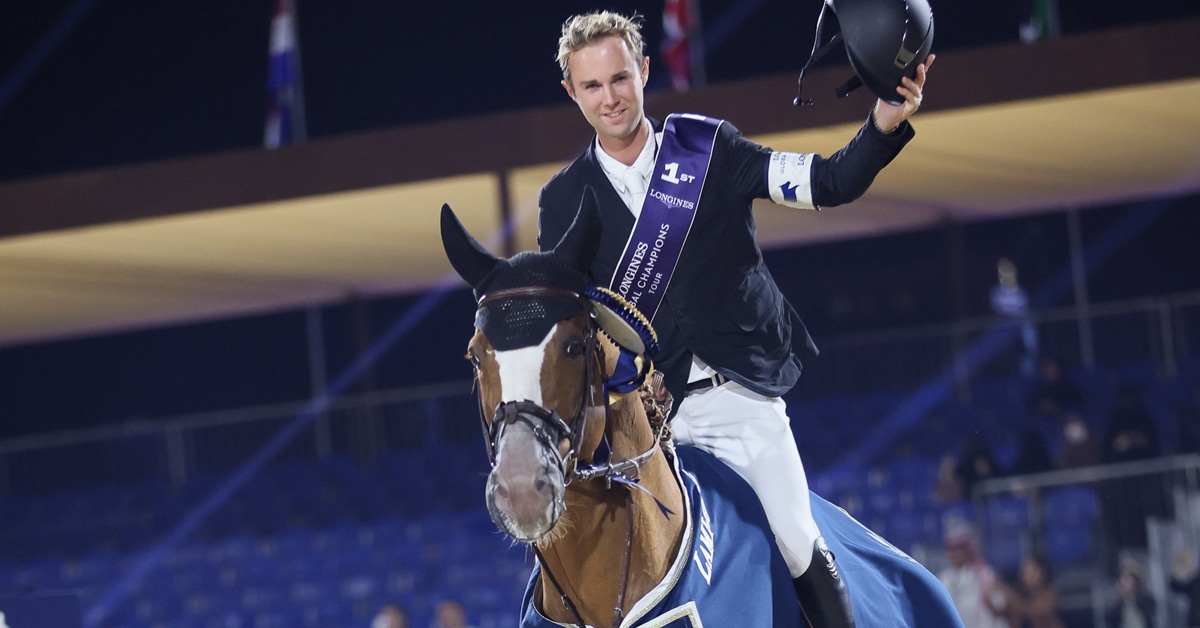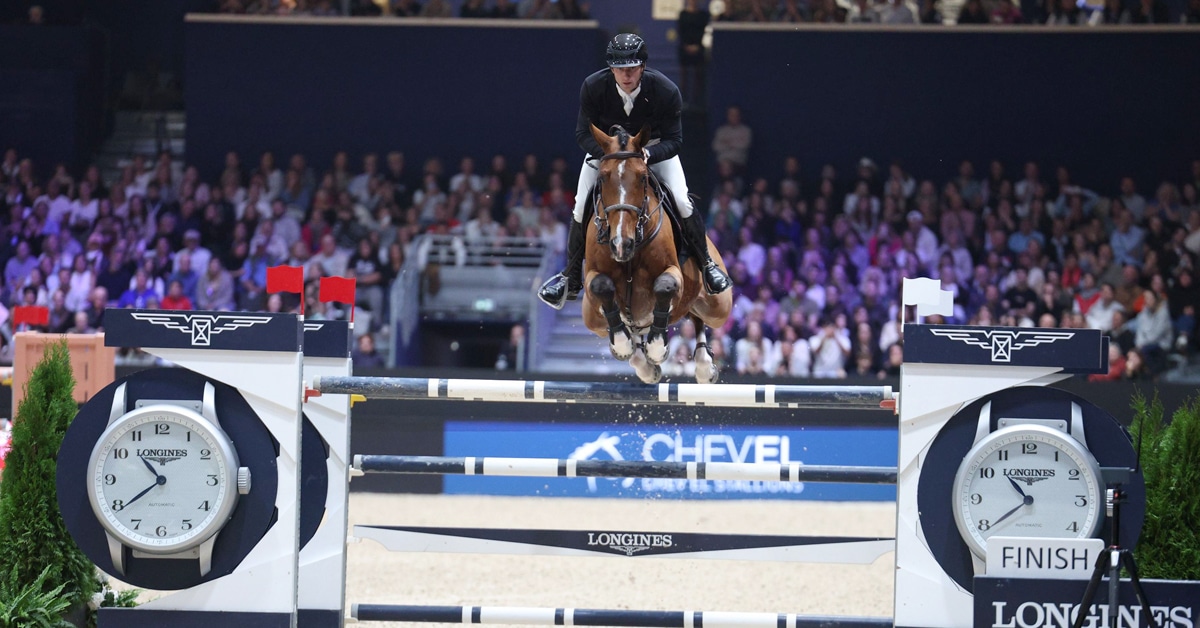Austrian jumping rider Felix Koller has been handed half the usual suspension for a banned substances offence after his national team veterinarian admitted injecting his horse multiple times during the 2019 CSIO5* at St Gallen, Switzerland.
The FEI has also warned about Equimed USA, manufacturer of two of the products given to Koller’s Captain Future 3 without his knowledge. These two “in particular raised concerns, namely Biodil and Hemo-15….” In the FEI’s experience Equimed USA products have contained prohibited substances before. “In fact the brand openly sells products containing anabolic steroids, and other banned substances,” said the FEI.
Koller is employed in Germany by Paul Schockemohle, in a prestigious program for talented younger riders. He was making his Nations Cup debut for Austria when Captain Future tested positive to banned Diisopropylamine on June 2, 2019.
The team veterinarian, who is not named in the decision notice, acted throughout without Koller’s knowledge or consent. He has been dismissed by the Austrian federation. The FEI is considering separate disciplinary action against the vet for multiple rule breaches. The FEI also agreed with Koller that the vet had falsified some of his evidence.
When the positive sample was first notified, the FEI felt the concentrations were too high to be explained by contamination. It contacted the manufacturer of supplements that are regularly fed at the Schockemohle stable, who confirmed they never used the ingredients at issue. The only treatment of Captain Future in the past year was a hock injection with Betamethasone.
Koller only found out about the treatments during St Gallen when receiving the vet’s invoice, though he had noticed Captain Future felt “weak” on the last day.
After being sent a purported copy of the invoice by the vet, the FEI asked for clarification. In emergencies or on-going treatment, horses may only be treated with injectable Controlled Medication Substances or antibiotics the day they compete with prior authorization from the veterinary delegate or ground jury, and in the authorized treatment box. None of these procedures were followed.
Koller said that in a cellphone conversation on September 6, the team vet “told me that he had given vitamin B (would fit Diisopropylamine) but then had to make some improvements and thought that he had given vitamin C (vitamin C is used for regeneration after the competition and not before the competition).
“Where I asked him about Sunday, he said in this call I shouldn’t tell anyone, because it is not allowed to treat the horse on the same day.”
Exactly which products were injected remain unproven but “the FEI concludes it is both plausible and probable that the multiple injections of such products led to the positive finding of Diisopropylamine.”
In a negotiated settlement, Koller accepted a backdated one-year suspension – the standard tariff is two years – through August 6, 2020 and a fine of 1,500 Swiss francs.
The FEI agreed he bore “no significant fault or negligence.” The defence of “no fault and negligence” cannot apply where a banned substance was administered without disclosure, because riders are responsible for their choice of veterinary/support personnel and for advising them not to give banned substances.
The decision notice details the scope of treatment, both legitimate and prohibited, of this top horse during the show.
The vet’s invoice covering May 30- June 2, 2019:
1 Box of PK 1000 4S for oral application (given by the groom)
Box of AMP Paste for oral application (given by the groom)
3 injectors of Pepticur for oral application (given by the groom)
2 injections i.v. = 500ml Duphalyte (2 injections because of the huge volume, were injected by a small catheter)
1 injection hyaluronic acid i.v. =l0ml Gel-50
3 Aufbau [constructed] injections i.v. = 20ml Biodil, 20ml Hemo 15, 20ml Vitamin C
1 injection hyaluronic acid i.v. = 10ml Gel-50
2 Aufbau” injections i.v. = 20ml Biodil, 20ml Vitamin C
1 injector of Free to Fly for oral application
1 injector of Amino Speed for oral application
The following products were submitted as being administered:
PK 1000 4S – Equi 4S
AMP Paste – Equiprovet BV
Pepticur – Bayer Vital
Duphalyte – Grovet
Gel -50 – Equimed USA
Biodil – Equimed USA
Hemo 15 – Grovet (or Equimed)
Vitamin C – Grovet
Free to Fly – Cento Fiori srl
Amino Speed – Tecnozoo (Equiplanet)
What is Diisopropylamine?
The decision notice says Diisopropylamine is a vasodilator for peripheral and cerebral vascular disorders in humans. Diisopropylamine and Diisopropylamine Dichloroacetate are “used and abused in equestrian sport i.e. horse racing and endurance, due to its alleged effects to increase the oxygen utilization and the cortical glucose uptake.”
The two commonly used compounds are Diisopropylamine and Pangamic Acid, also known as B15 which is not a “ real vitamin.” A company may market the product as Pangamic acid or vitamin B15 while using Diisopropylamine Dichloroacetate.
Furthermore, pangamic acid, also known as pangamate is promoted in various forms as a dietary supplement and drug, but is considered unsafe and subject to seizure by the US Food and Drug Administration.” The products are usually sold online, from the Arabic region or the US. To alert the horse community, its various trade names are already on the FEI prohibited substances list.
More News
